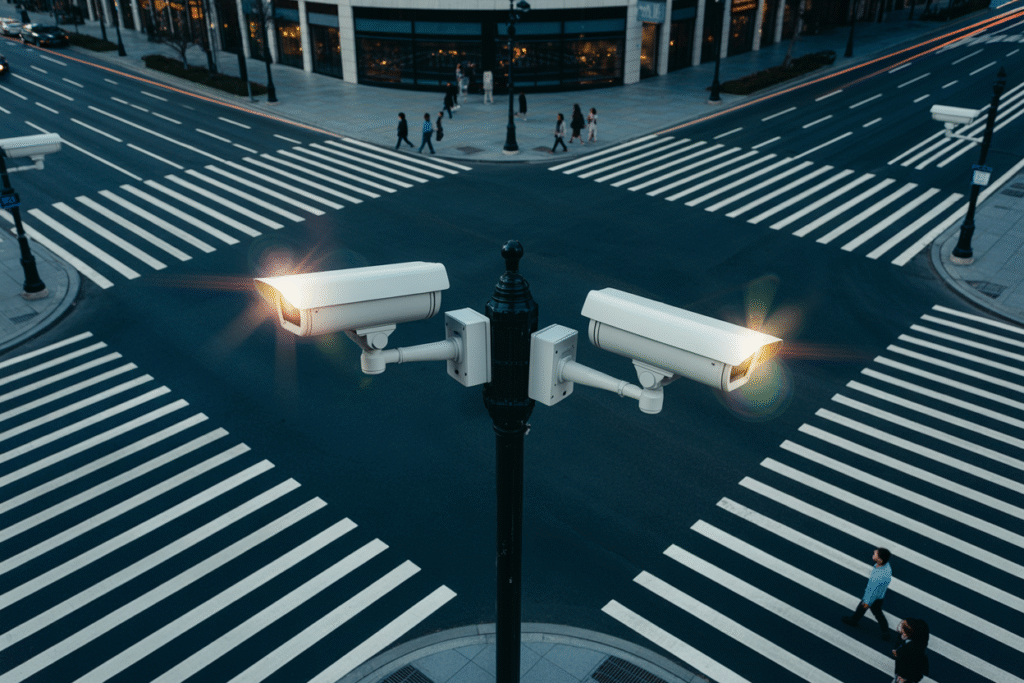From YouTube’s algorithmic mind-reading to China’s AI classroom, the lines between protection and control have vanished.
Picture this: you blink too long at a political post and your phone ratchets its content down to nursery rhymes—that verdict happened to a real user three hours ago. That’s not a glitch; it’s the new moral hand of AI. The past 180 minutes have tipped surveillance from background noise into the driver’s seat, shaping faith, ethics, and freedom faster than we can hit refresh.
YouTube’s Hour-Old Algorithmic Judgment
At 11:42 UTC today, YouTube deployed AI that cross-checks watch-length patterns against demographics, then rewrites your age without asking. One university student lost access to climate-lecture playlists because her pause-before-scroll ratio flagged her as “under-18 emotional profile.”
The platform frames it as child safety. Privacy watchers call it profiling-by-proxy. Either way, it’s the same tech once reserved for YouTube Kids ballooning into all content. One libertarian pastor joked on X that original sin now has a confidence score of 94.7 percent.
This isn’t theory—it’s live in forty countries. When the algorithm mislabels a middle-aged theologian, his commentary on church-state separation vanishes from feeds. That’s a direct AI-influenced theology blackout under the banner of morality.
Chips with Hidden Morals
Less than an hour ago, Beijing officials summoned Nvidia about rumored backdoors in H20 chips—GPUs built to dodge U.S. export bans. Leaked briefing notes suggest the chips can geofence compute clusters rendering religious apps, shutting them off during sanctioned hours.
Rumors swirled of a chapel VR service flickering in Shanghai as the chip sensed “unregistered theology code.” Nvidia denies it. Employees privately told The Byte that firmware can indeed throttle domains tagged by Chinese censors. Imagine kneeling virtually only for the server to decide God is offline today.
The controversy folds religious freedom into geopolitics: one GPU silently weighs salvation against state preference. When the chip is the priest, who hears confession?
Facebook’s Staff-Sinning AI
At 12:15 UTC, Facebook’s internal AI called out an employee’s personal post about mandatory prayer breaks. Within minutes, the post triggered an HR “moral alignment review.” Screenshots leaked to X show the algorithm surfaces off-duty prayers alongside COVID opinions for managerial eyes only.
Employees now live the ancient dilemma: render to Caesar or render to code. HR insists the system protects company values. Workers describe it as twenty-four-hour ecclesiastical courts minus appeal.
Outside observers recognize the creep. Tech ethicist Dr. Lara Singh calls this “weaponized virtue,” where AI acts as outsourced clergy policing private conscience. The result? A chilling effect on discourse about spirituality and ethics inside the very platforms shaping those norms.
China’s Classroom of Algorithmic Virtue
This afternoon, Beijing announced fall-semester AI courses for kids, including modules on “ethical echo-chamber detection” and “bias in spiritual data.” On paper it sounds enlightened—an attempt to vaccinate kids against propaganda. In practice, critics fear it teaches teens to label Tibetan prayer algorithms as misinformation.
The curriculum gamifies moral decisions: students code chatbots then test them against state-approved virtue scores. High scores unlock extra CPU time—success literally runs on compliance.
For parents, the trade-off is stark. Mrs. Yuan, mother of a seventh-grader, told Red News, “My child learns to build fairness engines, but fairness is defined by Beijing, not by the Dalai Lama.” If tomorrow’s monks debug the karma app, who sets priority on compassion?
Rewriting the Ten Commandments in Code
Across these snapshots, a pattern emerges: we’re rewriting morality as firmware.
Old debates about sin and grace now negotiate latency, bandwidth, and regulatory capital. When an AI decides your spiritual content rating, the serpent simply has a changelog.
Three investor vultures are already circling this space—one patented a confessional widget that logs sins, another sells “algorithmic indulgences” to boost post reach. Venture capital devours the sacred before theologians can craft a tweet.
Yet the resistance writes itself. Underground Discord servers now swap holy texts encoded like 1990s warez. Pastors hold crypto-key communion where the host is data-mined, but sanctity survives.
The takeaway? AI in religion and morality isn’t coming. It’s already preaching. The microphone is hot—will we tune in or turn it off?


